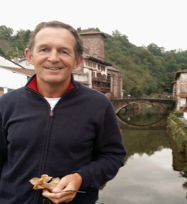Edward Kelly
According to this model of adult development, less than 10% of our leaders have the developmental capacity to match the complexity of the issues they face, and that includes President Donald Trump and Prime Minister Theresa May. This mismatch, which gets resolved at the next stage in our or their development, looks more like statesmanship than leadership.
How much better off would we be to have statesmanship as our model of good leadership, rather …

